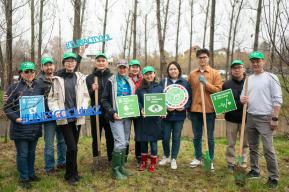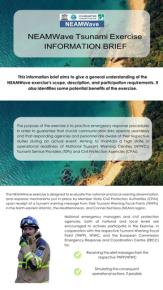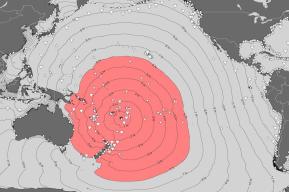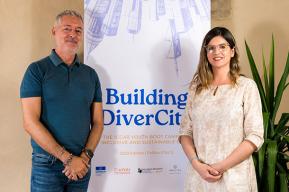News
How Turkish Kadıköy Municipality provides support in the aftermath of the earthquakes

Kadıköy Municipality, a member of UNESCO’s International Coalition of Inclusive and Sustainable Cities (ICCAR), has demonstrated its commitment to inclusivity and sustainability by providing emergency support in the aftermath of the devastating earthquakes.
Situated in the Istanbul province, with an area of only 15.53 sq mi, and a population of just over 450000 people, this relatively small but mighty municipality has managed to deliver concrete results that have made a tangible difference in the lives of those affected by the disaster. It was one of the more active municipalities in delivering food as well as sending search and rescue teams in the affected areas. Its proactive response to the earthquakes is a testament to its commitment to promoting sustainable development and inclusive policies: its efforts have helped to alleviate the suffering of thousands of people.
The municipality’s search and rescue team BAK Kadıköy, composed of 49 highly trained personnel and a search dog named Lena, was deployed immediately after the first earthquake shook Türkiye.
BAK Kadıköy worked tirelessly to rescue people from the rubble and managed to successfully rescue 17 people, including two babies and a 72-year-old citizen. In addition to its search and rescue efforts, the Municipality set up its mobile kitchens and mobile food trucks to distribute hot meals to those affected in the disaster area. They proved to be invaluable in providing much-needed sustenance to people who had lost their homes. In an aid campaign initiated by the municipality, 43 trucks have delivered 33,119 aid parcels to the region so far.
We are born again with every soul that clings to life. We are grateful to our BAK Kadıköy, who have become our hope, and to all the search and rescue teams.
Mobile kitchens distribute hot meals
To distribute hot meals in case of disasters, Kadıköy Municipality has two mobile kitchens, which were deployed in the disaster area. The municipality also sent two mobile food trucks to Malatya. Mobile kitchens in Hatay's Samandağ and Defne districts and food trucks in Malatya serve 10,000 portions of hot food per meal daily to the victims in the affected areas.
Crisis desk
A crisis desk was quickly set up in Kadıköy Municipality right after the earthquake. The volunteer team, consisting mostly of university students, Kadıköy residents, and the municipality personnel sorted the aid materials and packed and sent them to the disaster area. Aid packages have been delivered to the provinces of Hatay, Kahramanmaraş, Adıyaman, Malatya and Gaziantep by land and sea.
Leaving no one behind
As a member of the European Coalition of Cities against Racism (ECCAR), which is a component of UNESCO’s International Coalition of Inclusive and Sustainable Cities (ICCAR), Kadıköy Municipality has shown its commitment to leaving no one behind in this time of crisis, attending to the needs of the most vulnerable groups, such as children and the elderly, regardless of their background or identity. This dedication to promoting solidarity and fighting discrimination at all times is a crucial part of their effort to provide aid to local communities, and it serves as a powerful reminder of the crucial role of inclusive and sustainable cities to the consolidation of just and peaceful societies.
***
UNESCO’s International Coalition of Inclusive and Sustainable Cities - ICCAR assists local authorities in combating discrimination in their capacity as policy-maker and service provider in areas as diverse as education, employment, housing provision and cultural activities.








